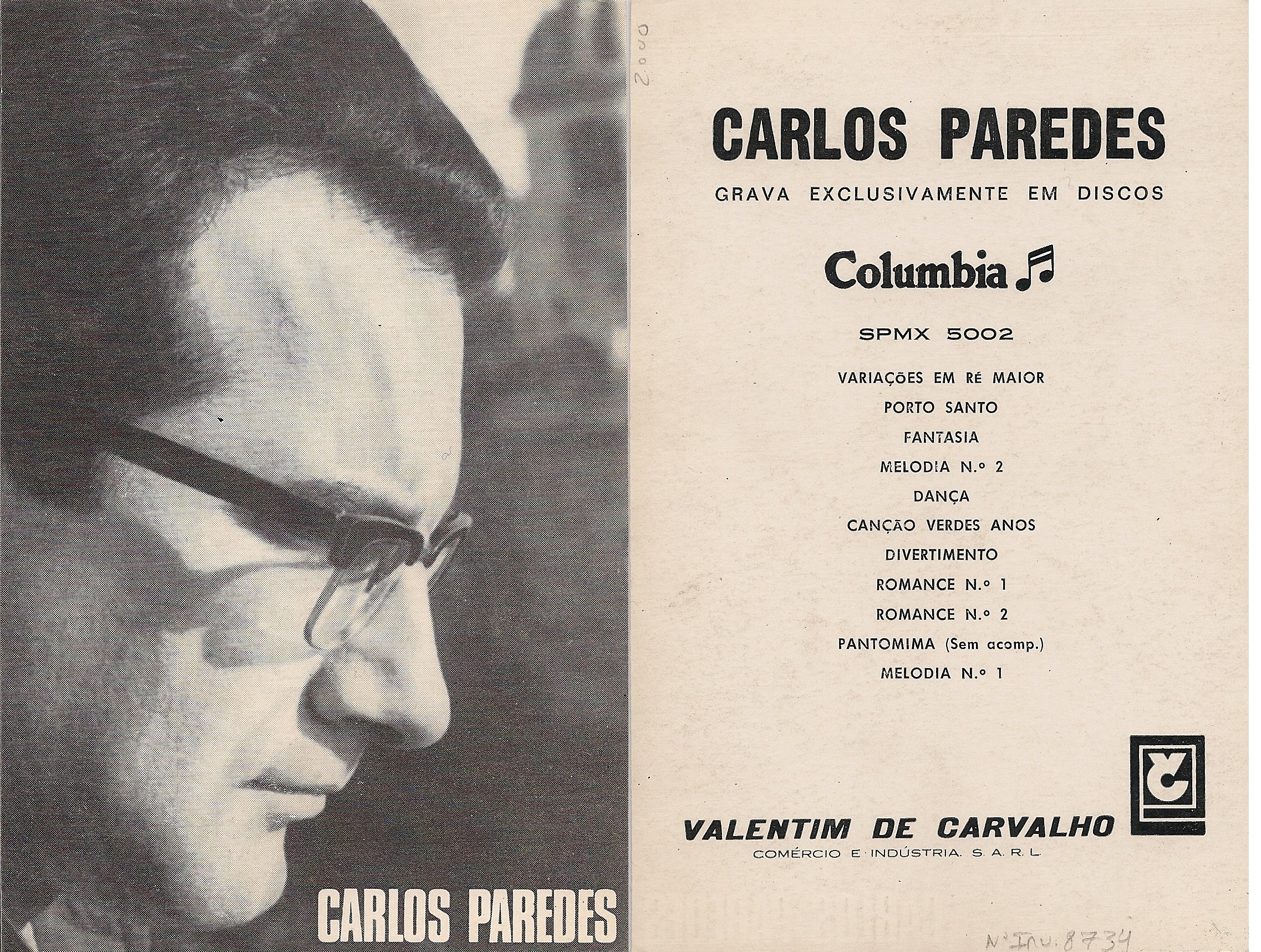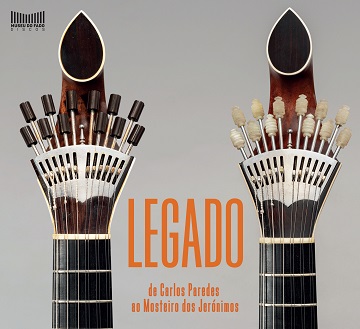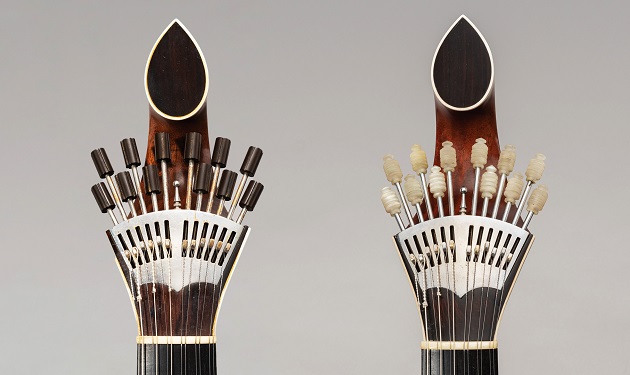Know more:
Carlos Paredes
(N. 16 February, 1925 - M. 23 July, 2004)Carlos Paredes was born on February, 16th, 1925, in Coimbra. Son of Artur Paredes, grandson of Gonçalo Paredes, nephew-grandson of Manuel Rodrigues Paredes, he was heir of a large family of guitar tradition.
His father taught him how to handle the guitar and just for fun he accompanied his father with 9 years old. Later, when he was 14, he and his father have played music of their authorship at Emissora Nacional every week.
Around 1931 his family settled down in Lisbon. He finished primary school at Jardim-escola João de Deus and then, he attended Liceu Passos Manuel. At this time he had lessons of violin and piano. In 1943 he did the entrance examination at Instituto Superior Técnico, but only attended the first year.
In 1949 Carlos Paredes became civil servant working for several years at São José Hospital X-ray archive department until he retired on November 1st, 1986.
Carlos Paredes got married twice; first he got married to Ana Maria Napoleão Franco Paredes, in 1960, and then got married to Cecília de Melo.
Carlos Paredes had great influence of Portuguese popular music as well as Coimbra’s Fado and never rejected it. He was responsible for the renewal and re-invention of new tones of Portuguese guitar, because he worked with singers as José Afonso, Adriano Correia de Oliveira, Luís Goes and António Bernardino, as well as he had the chance to play lyrics based on Manuel Alegre’s poetry, to play with António Portugal, and with the guitar players Rui Pato and Luis Filipe. Those names correspond to the generation of 60’s, a generation of different socio-cultural ideas. To sum up it was this Coimbra’s generation who made the guitar’s musical revolution and sang valuable principles having respect for ethnic cultures.
Carlos Paredes left us renowned musical works. His contribution in theatre, dance and cinema was inestimable, becoming one of the best composers / players of Portuguese guitar, despite he never played guitar, as it was his profession.
His career as a musician began when he recorded his first album named “Carlos Paredes”, in 1957. Three years later, in 1960, he composed the soundtrack of the film "Rendas de Metais Preciosos" directed by Cândido Costa Pinto. He started working on partnership with Fernando Alvim for more than 20 years.
This work wasn’t the last in cinema. He also composed to the film “Os Verdes Anos" (1962), his ex-libris composition and to the film "Mudar de Vida" (1966), directed by Paulo Rocha, or "Fado Corrido" (1964), directed by Jorge Brum do Canto, he collaborated on "P.X.O" (1962), by Pierre Kast and Jacques Valcroze; "Crónica do Esforço Perdido" (1966), by António Macedo; "À Cidade" (1968) and "The Columbus Route” (1969), by José Fonseca e Costa; "Tráfego e Estiva" (1968), by Manuel Guimarães; "Hello Jim!" (1970), by Augusto Cabrita; and "As Pinturas do Meu Irmão Júlio" (1965), by Manoel de Oliveira, among others.
In 1964, he collaborated in theatre with José Cardoso Pires in the historical staging of Fernando Gusmão in Teatro Moderno de Lisboa; with Carlos Avilez in "Bodas de Sangue", a CITAC’s play and in "A Casa de Bernarda Alba" of Garcia Lorca, presented by Teatro Experimental de Cascais.
The guitar player had composed lyrics to theatre and cinema until 1971. At this year he records his masterpiece, the record “Movimento Perpétuo”, a work of magnificent songs as "António Marinheiro", "Mudar de Vida" and the track “Movimento Perpétuo”.
From 1971 to 1977 he had composed the music to "O Avançado Centro Morreu ao Amanhecer" by Agustin Cuzzani, and chose the soundtrack of some shows performed by Theatre Group of Campolide.
About dance, in 1982, Vasco Wallenkamp produced a play named "Danças para Uma Guitarra", music by Carlos Paredes.
After April 25th, 1974, the soundtrack of Revolution was his own music: the first democratic polls were daily TV advertised with his music. In 1975, year of elections, he recorded an LP which the lyrics were the poetry by Manuel Alegre. This record is called "É preciso um País".
Carlos Paredes starts perfoming at important stages all over Europe and even without his producer’s agreement, an LP named "O Oiro e o Trigo" (1980) is sold in Democratic Republic of Germany. This record has original songs recorded in 1973 and 1975. Besides, in that country, a record compilation named "Meister der Portugiesischen Guitarre" was already being sold in 1977.
After he canceled the contract with Valentim de Carvalho, in 1983, his new producer released a live-recorded album, in Frankfurt, with original tracks.
In the following year, he played guitar and António Vitorino de Almeida played piano, on a duet composition, recording the album "Invenções Livres" and in 1988, Polygram, his new producer sells a lot the LP "Espelho de Sons", achieving the 3rd position on the ranking sales.
His next work would be a duet composition with the contrabass Jazz musician Charlie Haden ("Dialogues"), and the collaboration with Madredeus on the live record album at Coliseu de Lisboa.
His last record named “Na Corrente" is produced in 1996 with originals, when the genius guitar player is already ill and can’t perform or record.
The guitar player was brought up in an opposition environment to Salazar’s regime and in 1958 he joined the secret Portuguese Communist Party. On September 26th, 1958, Government Police (PIDE) arrested him at his work. He was arrested for 18 months and then, when he was released; he was suspended from his work at São José Hospital. So, for many years he has worked as medical propaganda commissioner.
He was invited many times to cast Government Delegations despite he suffered political persecution, performing at Varadero Festival in Cuba, in 1967, in the International Exhibition of Osaka, in 1970, or at Sidney Opera House in Australia.
After the revolution of April 25th, 1974, Carlos Paredes collaborated in several events of Portuguese Communist Party not only in Portugal but also in countries of Eastern Europe.
His last performance to an audience was in October, in 1993 at Aula Magna da Reitoria da Universidade de Lisboa accompanied by Luisa Amaro.
In December 1993 he finds out his serious illness that kept him away from his life as musician. After that, he no longer plays until his death in 2004.
His work was an inestimable legacy to Portuguese musical culture. From June to September of 2000, the Fado Museum had the temporary exhibition "Estar com Paredes" showing the biographic and professional Carlos Paredes’ life.
Source:
Written text based upon the exhibition catalogue "Estar com Paredes", CML/EBAHL, 2000.
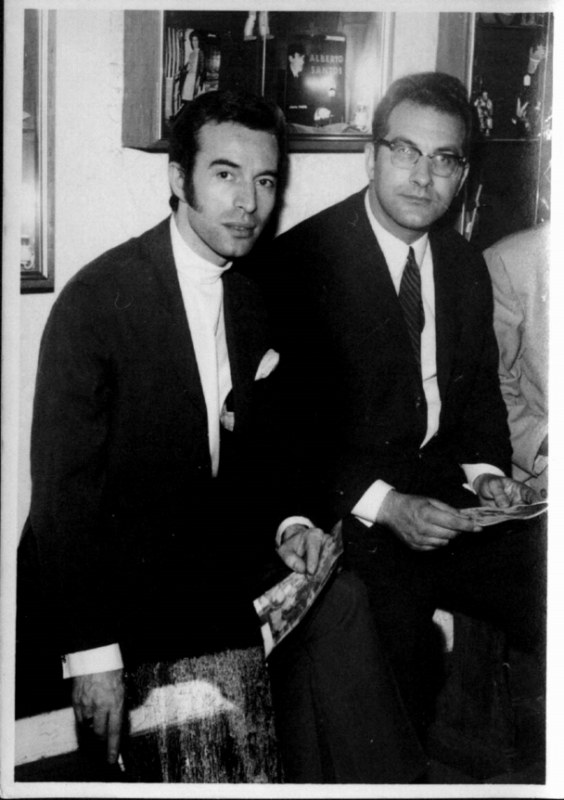
António Rocha e Carlos Paredes, s/d.
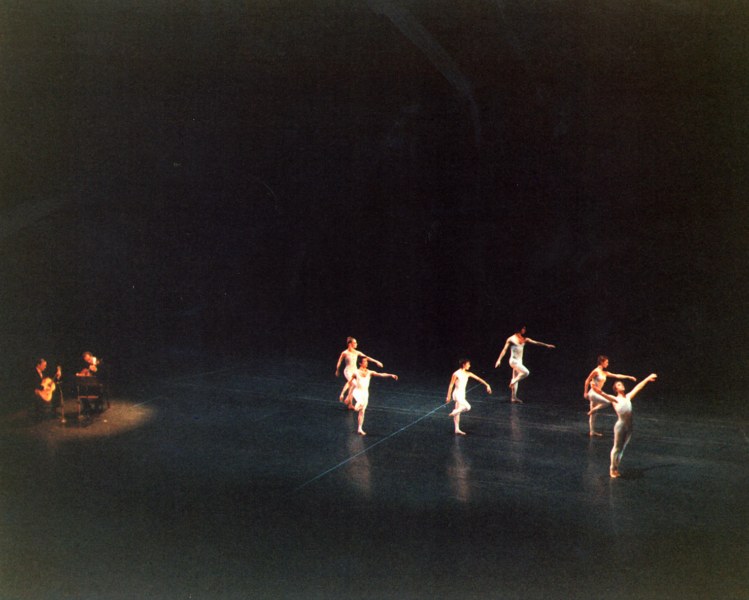
Fernando Alvim e Carlos Paredes, s/d.
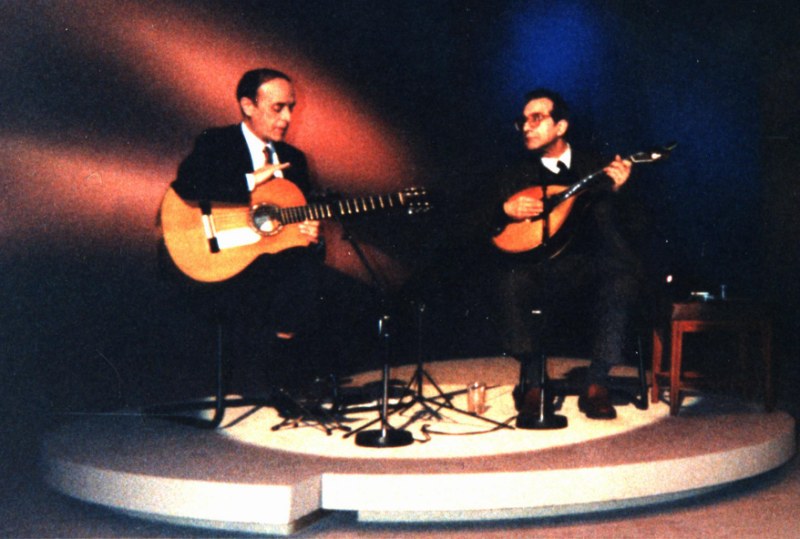
Fernando Alvim e Carlos Paredes, s/d.
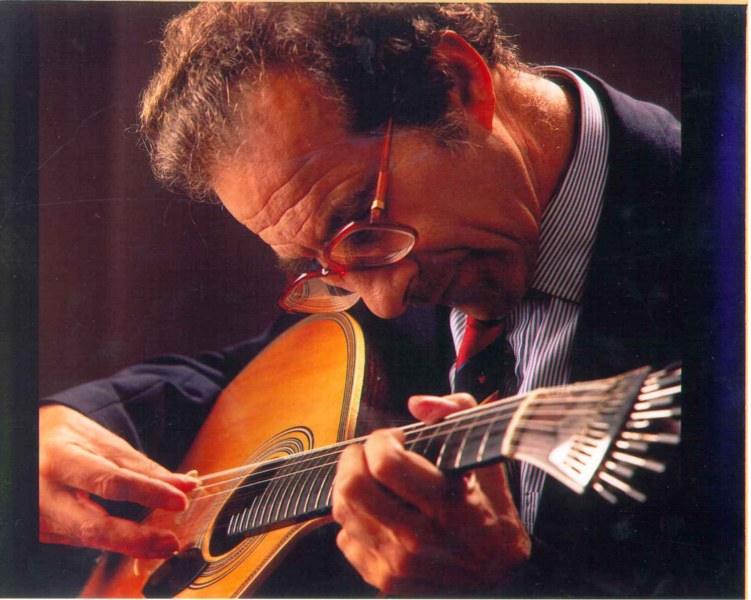
Carlos Paredes, s/d.
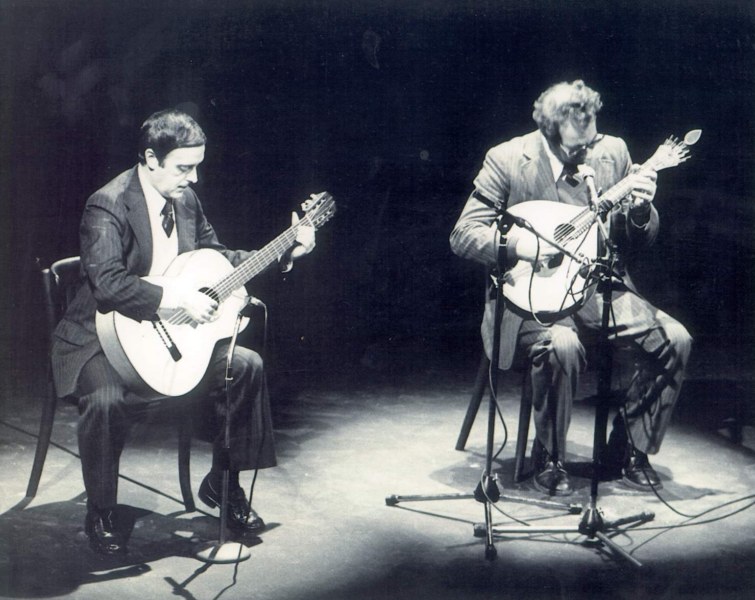
Fernando Alvim e Carlos Paredes, s/d.
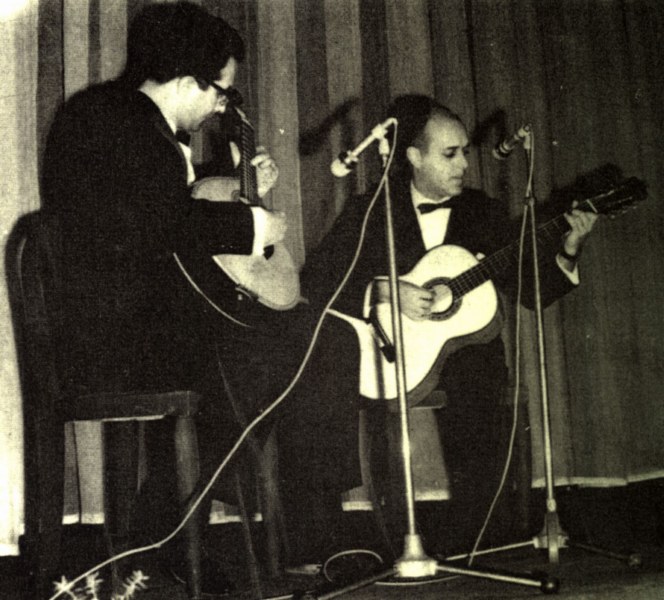
Fernando Alvim e Carlos Paredes, s/d.
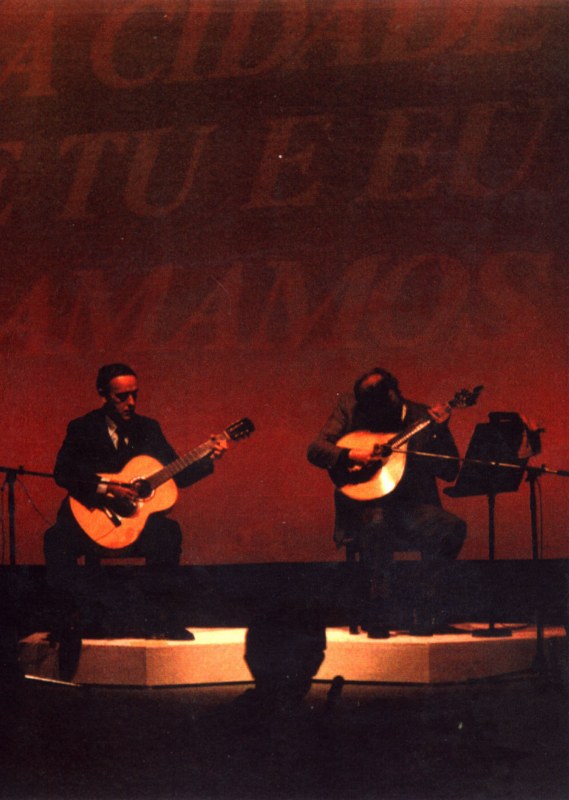
Fernando Alvim e Carlos Paredes, s/d.
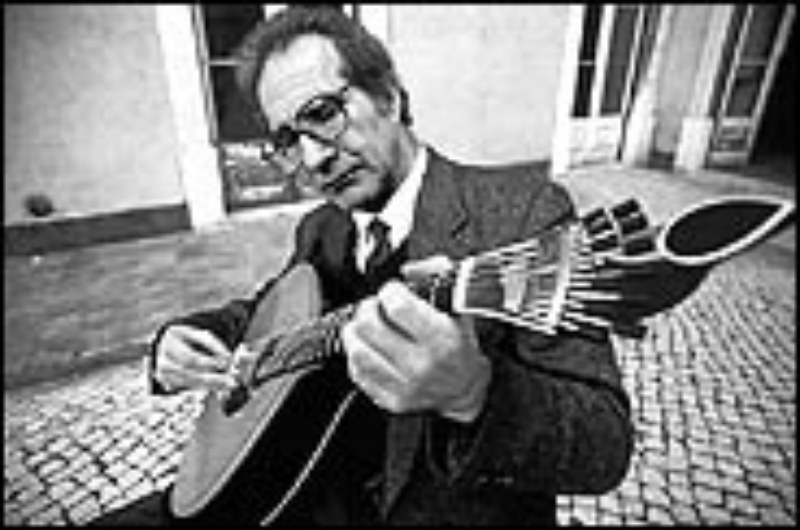
Carlos Paredes, s/d.
-
Verdes Anos Carlos Paredes/ Fernando Alvim (Carlos Paredes)
